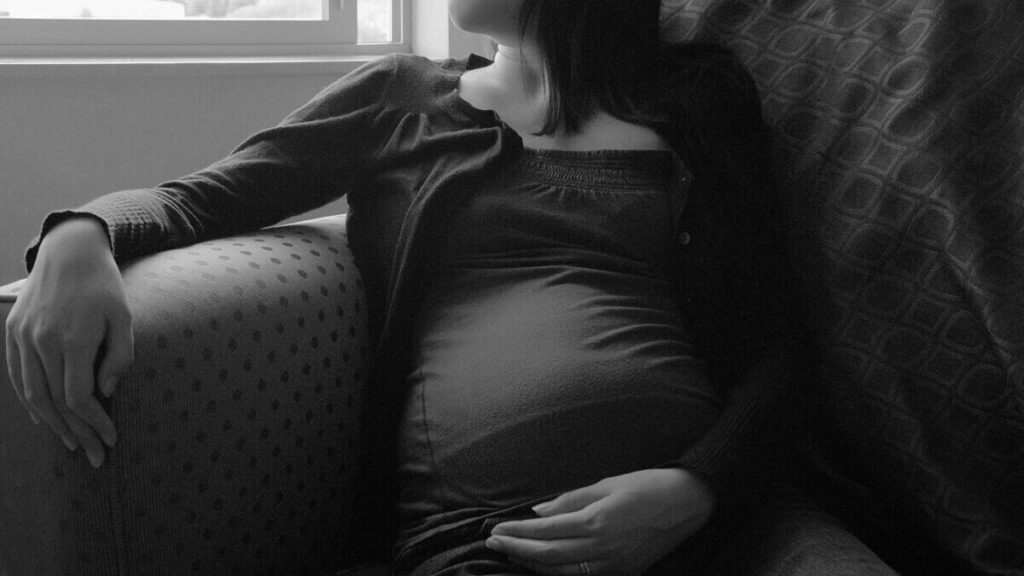
Published May 10, 2022
Liberalism has a reality problem — specifically, liberals believe that existence itself is the problem. For example, the liberal writer Thomas Chatterton Williams recently tweeted that it is “Hard to imagine anything more dystopian than being forced to give birth.”
This language of “forced birth” has become common among liberal supporters of abortion. Yet this is an odd way to defend legal abortion. Birth is the natural, healthy conclusion of a pregnancy, which is itself a natural, healthy result of sexual intercourse. Describing giving birth as “forced” demonstrates hostility toward the reality of human embodiment and the natural process of human reproduction. One might as well complain of “forced digestion” or “forced breathing.”
Nonetheless, viewing the normal order of human existence, and the realities of physical embodiment, as dystopian, is a logical endpoint for liberal ideology. The problem is simple: liberalism, or at least its current dominant strain, sees its aim as liberating us from involuntary constraints and obligations, but by definition we cannot consent to existence until we are already well into it, with all the contingencies of life.
As the Danish philosopher Soren Kierkegaard sarcastically put it, “How did I come into the world; why was I not asked, why was I not informed of the rules and regulations … Am I not free to decide? Am I to be forced to be part of it? Where is the manager, I would like to make a complaint!”
In this sense, every birth is a forced birth, insofar as it brings a person into the broader world without his or her consent. Existence is given to us: we do not choose to exist, nor do we chose the conditions under which we will be born and raised. And in the unchosen givenness of life, some are blessed and some are cursed. It seems somehow unfair.
There have been different responses to this perceived cosmic injustice, from stoic fatalism, to belief in reincarnation, to hope for the resurrection of the dead unto life everlasting. Liberalism takes a different tack. It does not try to apprehend the mysteries of the beginning and the beyond, but to liberate us in the here and now. The liberal project seeks to provide, to the extent possible, freedom from unchosen constraints, duties, and loyalties in life.
Professionalizing Care from Childhood to Old Age
This is why liberalism naturally favors a broad welfare state. The purpose of this welfare state is both to protect those who are dependent, and to protect those who do not want to be depended on.
Thus, liberalism professionalizes care from childhood to old age. The animating vision is a society in which everyone is taken care of, but no one has a private obligation to care for anyone else; no one has to sacrifice ambition, career, or personal freedom to care for children or parents or a sick relative.
But this liberal ideal is unrealizable with children, especially those in utero. Other than commercial surrogacy (which is just a form of concubinage for the well-off), there is no outsourcing pregnancy and labor to someone else. And once a pregnancy has begun, it cannot be passed off to someone else.
This is why liberals are complaining about “forced birth” — they really are horrified at the idea of an unchosen obligation to care for another person, even when it is the predictable result of consensual sex. Liberalism cannot tolerate that sort of involuntary duty, and so it requires the opt-out of abortion on demand.
Revolt against Humanity
Thus, a political philosophy that begins by claiming to protect the weak and dependent, and to liberate us from the unfairness of the givenness of life, ends by asserting an absolute right to take the lives of the weak and dependent — precisely because they are dependent. This is why, despite claims that welfare-state liberalism is the key to reducing abortion, the highest abortion rates in the United States are found in uniparty blue states such as New York and Illinois. A polity that disdains personal obligations of care for the dependent cannot spend its way to respecting human life in utero.
Human life developing in the womb can offer nothing but need; to respond to that need with violence is to assail human dependence in its purest form. This bloodshed lays bare how liberalism has become a revolt against our humanity.
Try though we may, we cannot escape dependence and contingency. Indeed, they are the sources of our greatest joys in this life, which are relational, rooted in family, friendship, and community. Abortion, in contrast, is a violent severing of the primal human bond of mother, father, and child.
The acceptance of mutual human dependence and obligation, not a political quest for independence from particularity, is what can both fulfill us and enable widespread human flourishing. In contrast, liberal complaints about “forced birth” demonstrate an anti-human ideology that poisons the self-giving of love. And it is love that redeems existence.
Nathanael Blake is a senior contributor to The Federalist and a postdoctoral fellow at the Ethics and Public Policy Center.
Photo: george ruiz/Flickr
Nathanael Blake, Ph.D. is a Postdoctoral Fellow at the Ethics and Public Policy Center. His primary research interests are American political theory, Christian political thought, and the intersection of natural law and philosophical hermeneutics. His published scholarship has included work on Jean-Jacques Rousseau, Hans-Georg Gadamer, Alasdair MacIntyre, Russell Kirk and J.R.R. Tolkien. He is currently working on a study of Kierkegaard and labor. As a cultural observer and commentator, he is also fascinated at how our secularizing culture develops substitutes for the loss of religious symbols, meaning and order.







